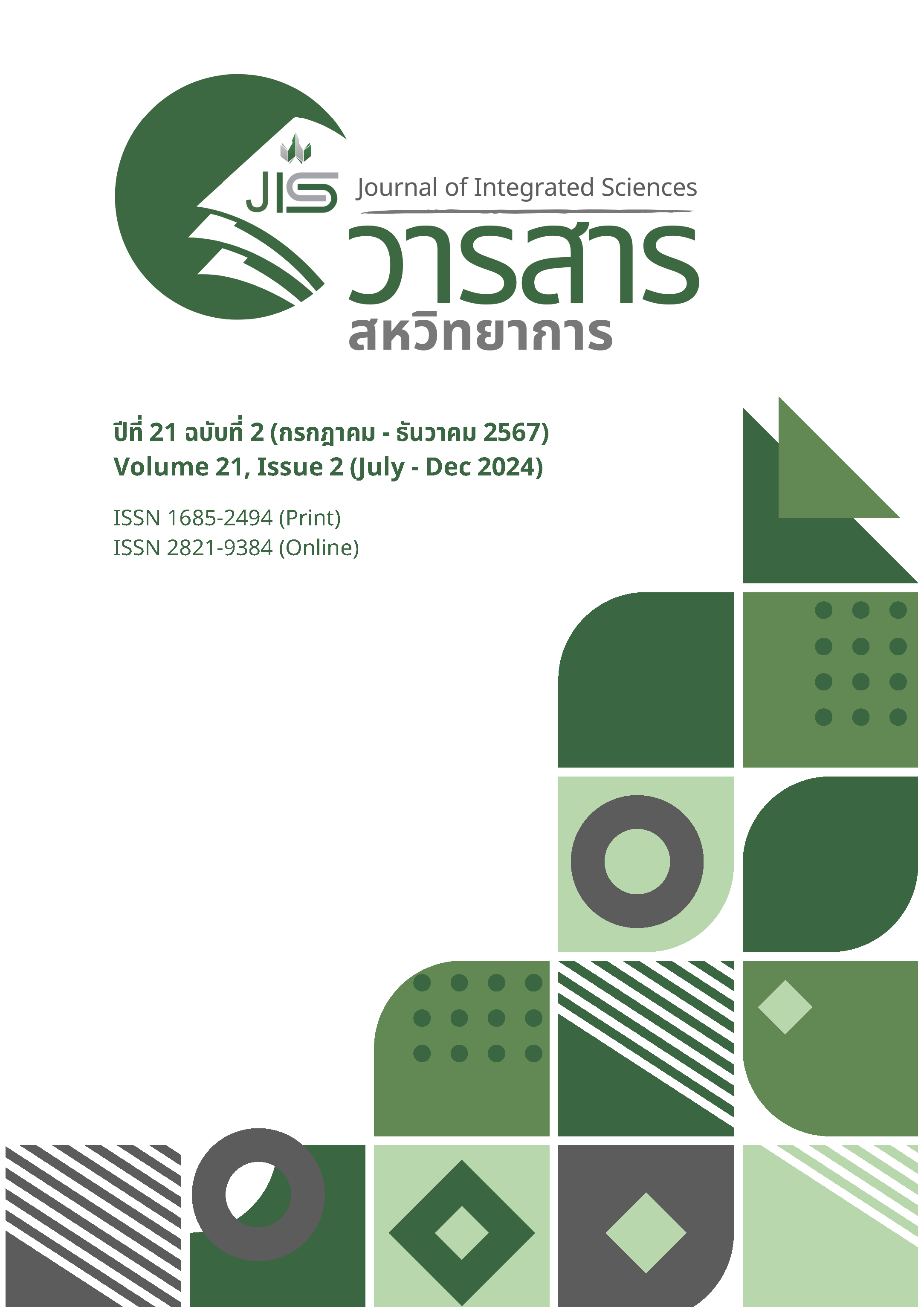มุมมองปัญหาแรงงานเด็กในอุตสาหกรรมอีสปอร์ต
คำสำคัญ:
แรงงานเด็ก, อีสปอร์ตบทคัดย่อ
บทความนี้มีวัตถุประสงค์เพื่อวิเคราะห์ปัญหาแรงงานเด็กในอุตสาหกรรมอีสปอร์ตจากการศึกษาทบทวนปัจจัยที่สำคัญของมาตรการที่เหมาะสมในการปกป้องผู้เยาว์ที่ทำงานภายใต้ระบบนิเวศธุรกิจกีฬาอีสปอร์ต ด้วยวิธีการทบทวนเอกสารทางกฎหมายที่เกี่ยวข้อง เพื่อใช้ในการวิเคราะห์การวางกฎระเบียบว่าด้วยกีฬาอีสปอร์ตในประเทศไทย ฝรั่งเศส และสหรัฐอเมริกา เพื่อนำไปประเมินและตรวจสอบปัญหาการคุ้มครองแรงงานเด็กในกีฬาอีสปอร์ตในประเทศไทย ข้อค้นพบของบทความฉบับนี้ได้นำเสนอประโยชน์ของการนำเอามาตรฐานทางกฎหมายสำหรับคุ้มครองแรงงานเด็กมาปฏิบัติในอุตสาหกรรมอีสปอร์ตและสามารถใช้เป็นแนวทางในการวางแผนดูแลเด็กและแรงงานเยาวชนให้ปลอดภัยในกีฬาอีสปอร์ตในประเทศไทย
เอกสารอ้างอิง
Brock, T., & Fraser, E. (2018). Is Computer Gaming a Craft? Prehension, Practice, and Puzzle Solving in Gaming Labour. Information, Communication & Society, 21(9), 1219-1233.
Cheng, M., Chen, L., & Yuen, A. H. K. (2022). Exploring the use of technology among newly arrived children in Hong Kong: From an e-sports and cultural capital perspective. Educational Technology Research and Development, 70(5), 1931–1949.
Chung, P. (2021). South Korea’s Esports Industry in Northeast Asia: History, Ecosystem and Digital Labour. In Lee, M. & Chung, P. (Eds.), Media Technologies for Work and Play in East Asia: Critical Perspectives on Japan and the Two Koreas. Bristol University Press.
Cisneros, J. (2022). Leveling the E-Sports Playing Field: An Argument in Favor of Government Regulation to Ensure Fair Player Contracts for Young Professional Gamers in E-Sports. California Western Law Review, 2(58), 334-362.
Gangwar, S. (2022). Minors’ Contracts in the Digital Age. Liverpool Law Review, 43, 237–261.
García, J. & Murillo, C. (2020). Sports video games participation: what can we learn for esports? Sport, Business and Management, 10(2), 169–185.
Harris, B. C., Hansen, J., Can, O., Rahman, M. W. U., Foxman, M., Cote, A. C., & Fickle, T. (2022). “Starting from scratch to looking really clean and professional”: how students’ productive labor legitimizes collegiate esports. Critical Studies in Media Communication, 39(2), 141-153.
Hewson, E. (2022). Exploring Vicarious Liability to Remedy the #E-Too Movement. York Law Review, 3, 7-50.
Holden, J. T., & Baker, T. A. (2019). The Econtractor? Defining the Esports Employment Relationship. American Business Law Journal, 56(2), 391-440.
Holden, J. T., Edelman, M., & Baker, T. A. (2020). A Short Treatise On Esports and the Law: How America Regulates Its Next National Pastime. University of Illinois Law Review, 2, 509-581.
International Telecommunication Union. (2020). Executive summary Guidelines for industry on Child Online Protection. Geneva: International Telecommunication Union.
Jeong-yeo, L. (2019, December 9). FTC to probe ‘slave’ contracts of Korean esports players. The Korea Herald. Retrieved from https://www.koreaherald.com/view.php?ud=201912 09000837
Johnson, M. R. (2021). Behind the Streams: The Off-Camera Labour of Game Live Streaming. Games and Culture, 16(8), 1001-1020.
Johnson, M.R., & Woodcock, J. (2021). Work, play, and precariousness: An overview of the labour ecosystem of esports. Media, Culture & Society, 43, 1449 - 1465.
Légifrance. (2023a). Décret n° 2017-871 du 9 mai 2017 relatif à l'organisation des compétitions de jeux vidéo. Retrieved from https://www.legifrance.gouv.fr/jorf/id/JORFTEXT0000346 33551
Légifrance. (2023b). Décret n° 2017-872 du 9 mai 2017 relatif au statut des joueurs professionnels salariés de jeux vidéo compétitifs. Retrieved from https://www.legi france.gouv.fr/loda/id/JORFTEXT000034633579
Lorenz, T. (2019, May 21). A New Lawsuit Could Transform How the Influencer Industry Is Regulated. The Atlantic. Retrieved from https://www.theatlantic.com/technology/ archive/2019/05/why-tfues-lawsuit-against-faze-clan-matters/589900/
Manuel Saiz-Alvarez, j., Manuel Palma-Ruiz, J., German Valles-Baca, H., & Alberto Fierro-Ramirez, L. (2021). Knowledge Management in the Esports Industry: Sustainability, Continuity, and Achievement of Competitive Results. Sustainability (Basel, Switzerland), 13(19), 10890.
McCutcheon, C. & Hitchens, M. (2020). eSport and the exploitation of digital labour. Journal of Fandom Studies, 8(1), 65–81.
Medeiros, B. & Sayeg, R. (2022). E-sports and the application of sports and labor legislation. International Journal of Innovation (São Paulo), 10(2), 212–240.
Rosell Llorens, M. (2017). eSport Gaming: The Rise of a New Sports Practice. Sport, Ethics and Philosophy, 11(4), 464–476.
Settimi, C. (2020, August 26). Fortnite Star Tfue Settles Dispute With FaZe Clan, Ending Esports’ First Major Employment Lawsuit. Forbs. Retrieved from https://www.forbes.com/sites/ christinasettimi/2020/08/26/fortnite-star-tfue-settles-dispute-with-faze-clan-ending-e sports-first-major-employmentlawsuit/?utm_source=pocket_mylist&sh=67bf61a222d8
Smith, N. (2022, March 4). Inside ‘contract hell’: Esports players say predatory contracts run ‘rampant’. The Washington Post. Retrieved from https://www.washingtonpost.com/ video-games/esports/2022/03/04/esports-player-contracts/
Stead, M. (2020, August 10). Safeguarding children in the virtual world of esports – lessons to be learnt from the real world. DLA Piper. Retrieved from https://www.dlapiper.com/ en/insights/publications/2020/08/safeguarding-children-virtual-world-of-esports
United Nations International Children's Emergency Fund. (2019). Child Rights and Online Gaming: Opportunities & Challenges for Children and the Industry. New York: United Nations International Children's Emergency Fund.
Wong, J. (2020). More Than Just A Game: The Labor and Employment Issues Within Esports. UNLV Gaming Law Journal, 1(11), 123-151.
ดาวน์โหลด
เผยแพร่แล้ว
รูปแบบการอ้างอิง
ฉบับ
ประเภทบทความ
สัญญาอนุญาต
ลิขสิทธิ์ (c) 2024 วารสารสหวิทยาการ

อนุญาตภายใต้เงื่อนไข Creative Commons Attribution-NonCommercial-NoDerivatives 4.0 International License.
บทความทัศนะ ข้อคิดเห็น ภาพที่ปรากฏ ในวารสารเล่มนี้เป็นความคิดเห็นส่วนตัวของผู้เขียน บรรณาธิการและกองบรรณาธิการไม่จำเป็นต้องเห็นพ้องด้วย และไม่ถือเป็นความรับผิดชอบ ลิขสิทธิ์เป็นของผู้เขียนและวิทยาลัยสหวิทยาการ มหาวิทยาลัยธรรมศาสตร์ การตีพิมพ์ชื่อต้องได้รับอนุญาตจากผู้เขียน และวิทยาลัยสหวิทยาการโดยตรง และเป็นลายลักษณ์อักษร






